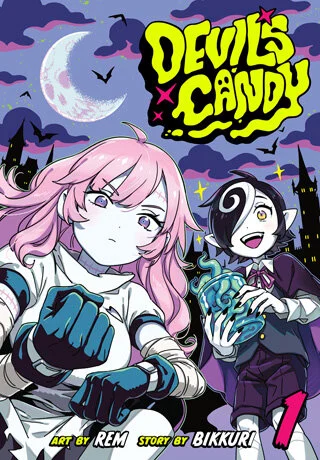Fangirl: The Manga....It's Okay....For Some...
Sam Maggs
….. the book is fine, to be more precise, the story didn’t resonate with me, not the way it should have. Fangirl is the manga adaptation of the best-selling novel by Rainbow Rowell. Adapted by Sam Maggs, and illustrated by Gabi Nam, It only covered the first half of the novel, and I’m vested enough to want to read how it wraps up but reading this didn’t feel fun for me. All I could think of is how passive the main character Cath was and how apathetic I felt watching her journey. I think I had different expectations for the story and was disappointed when they didn’t meet them. For a coming-of-age story about becoming independent and finding yourself, I was mostly annoyed with Cath. This was a story of how a young girl uses her love of fandom to hide away from the world, and although it’s probably a universal feeling for any teenager, my experiences were vastly different. Reading Fangirl however, allowed me to reflect on college, my freshman experiences, and how my life as a fangirl differed from the protagonist.
Cather Avery
Wren Avery
The cast of Fangirl falls between amusing and unexciting as it hits many tropes seen in “slice of life stories”. Here we have the hot twin (Wren) vs the bland twin (Cath), the crappy roommate (Reagan) with the hot guy friend (Levi), cute ethnic guy from class (Nick), and the single dad with dependency issues. To be fair, Cath’s family’s dependency issues stem from their mother who abandoned them, but let’s dive deeper into the twins. Cath is a prolific fan fiction writer of the Simon Snow series (think knockoff Harry Potter), and has been writing with her sister, Wren since the age of 11. The twins connected over the series and seemingly shared their love of the series for 18 years. However, at some point in time, Wren was tired of being part of the set and wanted to use college to expand her circle of friends and carve out her own identity apart from her sister. Cath, distressed by her sister's willingness to break out of her comfort zone, now has to grapple with navigating not just college work, but social interactions as well. It’s distressing how Cath goes out of her way to avoid these social interactions (for example, a seemingly mundane task of going to get food from the cafeteria puts her on edge). She would rather eat power bars, than talk to people. The only thing that seems to make her happy is writing fan fiction. Over time, she does eventually warm up to eating better, making friends, and going out instead of spending all her time in front of the computer, but not because she chooses to do this herself. Cath takes a passive role in her college life and is content with others making decisions for her.
Raegan
What really put me off was her roommate, Reagan, as she kept pushing herself into her life and claiming to be her friend (only because she felt sorry for Cath). Reagan’s friend Levi was a bit harder to read, but I believe they were coddling her because of Cath’s social ineptness. It’s not clear to me why Reagan and Levi are going out of their way to befriend Cath, other than the fact they’re roommates, but clear boundaries should have been drawn; especially since Reagan takes every opportunity to belittle Cath’s interests. They do, however, force Cath to leave her comfort bubble and go out every now and then. The one thing Cath was proactive on, was seeking out a senior level writing course.
In the story, she needed special permission to take the class as a freshman, and I like how the class is being used to help her expand on her writing, outside of the fanfics. Cath starts to thrive in her writing course, and the writing prompts she does with classmate Nick, help her expand her circle of friends too. I personally like Nick because he is so earnest as a writer, and genuinely has fun being with Cath.
There is tension in the book when Cath uses one of her fanfics for a writing assignment and her professor gives her a damaging grade. The professor accuses her of plagiarism, because she used the characters and settings from the Simon Snow series (another author's intellectual property). Cath justifies her choice because she wasn’t selling the story, but her professor brings up a good point in that she asked for an original piece and Cath didn’t deliver on that promise. This is the turning point in her life as a writer and as a person. She recognizes that the Simon Snow series is important to her, but now she has the opportunity to challenge herself as a writer as she starts to move away from rewriting someone else's world and starts to create her own.
Whenever Cath and Wren interact together, my heart goes out to them. Wren is living the stereotypical college life: Going to parties, excess drinking, and going to all the sports games. Unfortunately, she doesn’t include Cath in those plans. I understand she’s doing her best to be the opposite of Cath, but her behavior is concerning. I think I see more of myself in Wren, because she has a point, college is meant to find yourself and the best way to do so is to try different things, but as someone who is an older sister, I want to slap this girl for being ashamed of Cath and trying to hide her geekiness.
Cath and Wren
Cath thrives in an isolated online environment, with people who share her love of Simon Snow. She writes a popular BL (boys love) fan fiction and is content to be by herself in her comfort zone. Cath’s fangirl status and writing is used as a shield to help her escape reality. Some teenagers can see themselves as Cath, and I acknowledge that some might want to escape to an alternate reality when real life might be too much to handle. I used to feel that way as a teenager. Although the story didn’t resonate with me, I can see why it would for a possible younger audience.
Fangirl allowed me to understand that it takes time to learn how to deal with people and how to balance work and fun. Changing yourself for the better is hard, but hey, that’s what being in college is all about. I was lucky enough to find a circle of friends that shared my interests in anime and even those that didn’t. I also learned I was happier when I expressed my fangirl status, even if some didn’t agree with my methods of expression. It helped me grow as a person and as my nerdiness sometimes did separate me from my peers, it wasn’t always negative. While that’s somewhat reflected in Fangirl, I sincerely hope Cath finds peace in the 2nd installment.
I rate Fangirl, a 3.5 out of 5 stars. The art is amazing and expressive, and like I said previously I’m invested in Cath’s journey, and I sincerely hope other people are too.






